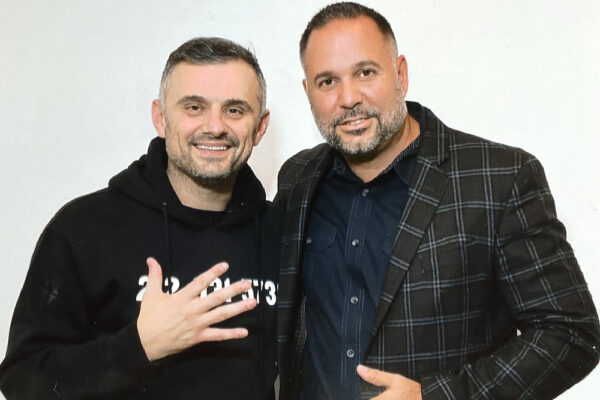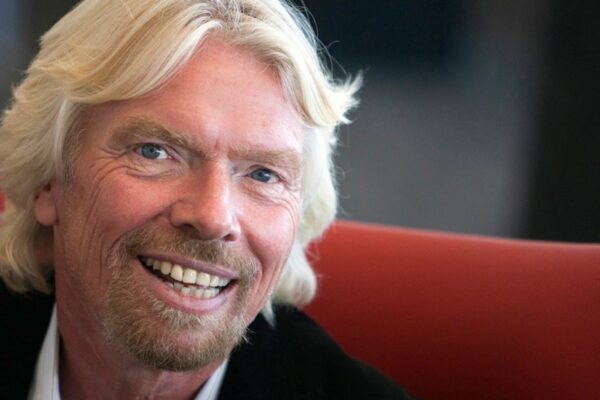Hi Dennis and welcome to Entrepreneurship Interviews. What kind of business do you run?
Dennis: We are a provider of eco friendly packaging solutions for business. Even though we are considered a distributor, we get much more involved in the design, manufacturing and marketing of the products we offer, compared to the traditional packaging distributor.
You have invented a Green packaging system. What is it exactly?
Dennis: My wife and I had been concerned for some time at how many boxes are discarded or recycled prematurely. They typically are not reused for cosmetic reasons and we were determined to figure out a way to make the usually clean interior of a used box, usable again. Our new, patent pending Globe Guard Reusable Box is unique in that it makes it possible for a previously used box to be converted into a like new shipping container by turning it inside out.
Main benefits?
Dennis: Anytime you can get one packaging product to do the job of two or more, you save money, space, procurement costs, etc. It is better and different than simply reusing a box (without inversion) because by turning the box inside/out, you are able to create a completely different look eliminating marking, labeling and other necessary identification.
You told me it works best for product returns, recalls and in general processes that involves shipping back and forth. What would be the actual path of the packaging system? Should companies deliver goods from the beginning using your system and expect the customer to use the special pack when returning the goods, or?
Dennis: Even though there are some B2C applications for the Globe Guard Reusable Box, most of the interest has initially been for B2B applications. Ideally the purchaser of the GGRB has to experience the savings and financial benefit and in most cases the box needs to wind up where it began its trip.
Ok, let’s name a few applications. Computers assembly and distribution? What else?
Dennis: A company we are working with is using it for parts exchanges and the box will be used and inverted by their own field technicians. Another company plans to use it for product laboratory testing. The box will be custom printed inside so when it is inverted, the product can be easily identified as having been tested and approved. Both applications eliminated the need for large, expensive, over size labels. Another popular area is “repair and return” scenarios such as lap top computers, cell phones and other electronic equipment.
Is “Green” a good way to market and promote products for a small company?
Dennis: There are few truly “new” markets so finding a way of creating an image of difference is crucial. Green is one of those ways if the green product or the green service being offered is authentic and legitimately green. That eco minded consumer is very well informed and tends to do their homework so hanging a green label on your non-green product is not convincing and will be understandably rejected by the market.
I’m from Eastern Europe, and I remember 10-20 years ago businesses here were complaining that going green increases their costs: more filters, new technology. But is Green necessarily more expensive?
Dennis: The “green costs more” myth continues but we prove it to be outdated on a regular basis. For example we sell our Globe Guard “stock” shipping boxes that are made of 100% post consumer waste recycled content. They perform identical to so called ‘standard boxes” and customers are usually surprised to discover they are often less expensive in price. There may be some areas where green still costs more, such as bio-plastics but the prices of those products have also dropped significantly in the last year or two.
Most start-up entrepreneurs are afraid airing their innovations because competition could “steal” the idea. Especially when pitching for funding. Is this a valid issue?
Dennis: It is indeed a valid issue but you can’t sell what you have to anyone unless you show it. That is also how you determine the viability of the idea or product so it does become necessary at some point to trust someone so all you can do is try to protect yourself with NDAs (non-disclosure agreements) and by patenting the idea as we chose to do.
I think patents are quite expensive. How long does it take and is this really so expensive?
Dennis: We decided to engage an attorney so in our case the cost approached $5,000. There are less expensive ways to begin the patenting process but for several reasons we thought this was the best way to go including the fact that we were able to file our patent application within six weeks of the start. My advice is simply to do your homework and explore all of the possible options that may be available to you.
You started the business a long time ago? I’m asking because entrepreneurs wanna-be are afraid starting a business because they don’t have an unique innovative idea, so is it necessary to start from the beginning with one of the kind idea or you can start with something that was done before and innovation will come along?
Dennis: I really don’t think success depends on a new and innovative idea because sometimes the solution is a finding a new and better way of doing something that others have been doing for a long time. We started out with the goal of making green packaging products available and affordable to any size customer who wants them. The Globe Guard Reusable Box was a direct result of getting to know the green market in terms of what they want and need.
You told me that there are savings to be made using your packaging system. From your estimations, how much can a company save?
Dennis: The hard savings on our box versus two standard boxes is usually in the 20 to 30%. The customer usually discovers there are a number of resulting softer savings that result such as elimination of labeling, reduction of labor, etc. Each application, like each GGRB is unique.
Any happy customers you can name?
Dennis: Our customer base is quite diverse and ranges from some of the largest and oldest green companies in America to people operating their green companies from their kitchen table, basement or garage. The larger companies may help to pay the bills but we truly enjoy working with startup companies because their enthusiasm and spirit is indeed contagious and keeps us going as well.
I’ve read on your blog that you are participating to tradeshows and industry meetings. This sounds expensive. Can a small business rely only on internet marketing which is cheaper?
Dennis: We would probably not be in existence today, if not for viral internet marketing. We blog, write for other publications, and I speak at almost any engagement offered because those are the best ways to reach wide and diverse audiences. It takes a while to determine which trade shows are worth the cost and which are not and quite frankly, we have made some expensive mistakes. There is probably a green show or conference being held somewhere in the US on any given week so you learn to be selective. You also realize how to budget your money and even more importantly, your time. Marketing is great but sooner or later you have to allow time to sell what you have to offer.
Can small businesses compete with large corporations when it comes to Green products?
Dennis: Absolutely and I think we are living proof of that. I would say that on a smaller or emerging market, a small company has a distinct advantage in that by its very nature it should be more flexible and able to make necessary adjustments to its marketing plan.
By the way, how did the financial economic crisis affect the packaging industry?
Dennis: Like every other industry, packaging as a whole has suffered loss of sales however; people committed to green are still buying. I would not call it recession proof because no market is, however eco minded consumers are more likely to make compromises or cut backs elsewhere in order to maintain their green standards.
Any support from Green organizations or from the legislation?
Dennis: It is a fast moving and rapidly changing market and we can only hope that country will continue making progress toward repairing the environment. New laws are being considered that will eventually impact just about every aspect of the green economy and the world we all share. This is all good, but it will take some time.
Any thoughts for the future?
Dennis: I often speak of the green movement being irreversible because it is generational. The young people in their 20’s and 30’s who are driving this necessary change will continue looking for ways to balance their green ideals and their economic requirements. That puts companies who understand that, and create products and service to address it, in a very good position to serve that market and to grow and prosper in the process.![]()




